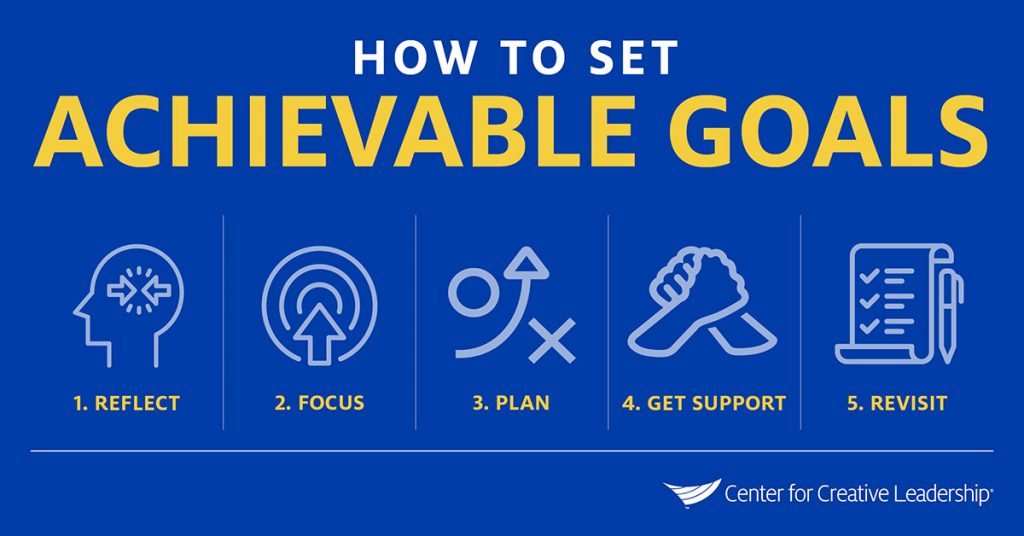Table of Contents
- Set Specific Achievable Goals
- Create a Study Plan and Stick to It
- Use Different Learning Materials
- Practice Regularly
- Listen and Repeat (Shadowing)
- Practice with Native Speakers
- Learn New Vocabulary in Context Daily and Review it Regularly
- Practicing Writing in the Target Language
- Try Memory Techniques
- Stay Motivated
Selecting the 10 most effective study habits for foreign language learning is a matter of personal choice and experience. If we were to ask a dozen experienced learners to make such a list, certainly there would be significant differences among individual habits chosen. Here I make a judgment call based on more than 5 decades of studying 47 languages and achieving reasonable levels of communicative competence in over 30 of them.

Image Source: Tudip Digital

1) Set Specific Achievable Goals
Set achievable major goals for what you want to learn and when you want to learn it and create achievable minor goals for daily study. Setting specific goals:
– Provides direction: helping you know exactly what you want to achieve in your language learning journey. Doing so can assist in focusing your efforts and resources on the areas that are most important to you.
– Helps with motivation: when you have a clear idea of what you want to achieve in a series of study sessions, you are more likely to stay motivated and focused.
– Facilitates planning: specific goals allow you to plan your language learning journey more effectively. You can break down your goals into smaller, manageable steps and create a study schedule that will help you achieve them.
– Provides a sense of accomplishment: when you set specific goals and achieve them, you feel a sense of accomplishment. This will help boost your confidence and keep you motivated to continue learning.
– Helps with tracking progress: specific goals allow you to track your progress more effectively. You can measure your progress against your goals and adjust your study plan accordingly.

2) Create a Study Plan and Stick to It
Consistency is key when it comes to language learning. Develop a study plan that includes regular study sessions, breaks, and revision. Doing so helps you to:
– Prioritize your learning: With a study plan, you can identify the most important areas of the language you need to learn and focus your efforts accordingly. This ensures that you make the most efficient use of your time.
– Stay organized: Having a study plan helps you stay organized and on track. You can use it to keep track of what you’ve learned, what you still need to learn, and what your goals are for each study session.
– Develop a routine: With a study plan, you can create a routine for learning the language. This helps you to develop good habits and maintain a consistent level of progress.
– Monitor your progress: A study plan allows you to monitor your progress over time. You can track how much you’ve learned, how well you’re doing, and where you need to improve.
– Adapt your approach: With a study plan, you can adapt your approach as you go along. You can adjust your goals and the way you study based on your progress and feedback.
– Achieve your goals: A study plan helps you to set achievable goals and work towards them. By breaking down your learning into manageable steps, you can make progress towards your goals and achieve success in learning the language.
Overall, developing a study plan is crucial for successful language learning. It helps you to stay organized, develop good habits, monitor your progress, and achieve your goals.

3) Use Different Learning Materials
Use a variety of materials, including textbooks, audio recordings, videos, and online resources to keep your learning engaging. It is important for several reasons:
– Helps maintain interest and motivation: Using a variety of materials keeps your language learning experience interesting and engaging. This can help you maintain your motivation and enthusiasm for learning the language. It is best if you can read articles and watch media that greatly interests you.
– Provides exposure to different aspects of the language: Different materials can help you develop different language skills, such as reading, writing, listening, and speaking. Using a variety of materials can help you develop a more well-rounded understanding of the language.
– Allows for different learning styles: Everyone has a different learning style, and using a variety of materials allows you to cater to your individual preferences. For example, some people may prefer visual learning, while others may prefer auditory learning.
– Offers different perspectives: Different materials can offer different perspectives on the language, such as cultural context or regional variations. This can help you develop a more nuanced understanding of the language and its use.
– Reinforces learning: Using a variety of materials can reinforce what you’ve already learned. For example, if you learn a grammar rule from a textbook, hearing it used in a podcast or TV show can reinforce your understanding of it.
– Mimics real-world language use: Using a variety of materials can help you prepare for real-world language use. In real-life situations, you will encounter a variety of language materials, so using a variety of materials in your studies can help you prepare for this.
Overall, using a variety of language learning materials is important because it keeps language learning engaging, caters to different learning styles, offers different perspectives, reinforces learning, and prepares you for real-world language use.
When studying a cognate language (one with similar vocabulary to languages you know well), you can start watching videos at an early stage. Such was the case for me when learning Afrikaans, Lao, and numerous Slavic languages.

4) Practice Regularly
Make language learning a daily habit by practicing regularly, even if it’s just for a few minutes a day. Regular practice is important for several reasons:
– Helps with retention: Regular practice helps to reinforce what you have learned and increases your ability to retain information.
– Builds fluency: Practicing regularly helps to build fluency in the language. By using the language regularly, you can improve your ability to speak and understand it more quickly and naturally.
– Develops good habits: Regular practice helps you develop good habits, such as setting aside time for language study and practice, which can help you make steady progress in your learning.
– Boosts confidence: The more you practice, the more confident you become in your ability to use the language, which can help you to communicate more effectively.
– Helps with motivation: Regular practice helps to maintain your motivation for learning the language. Seeing progress over time can be motivating and help you to stay engaged in the learning process.
– Prepares you for real-world use: Regular practice prepares you for real-world language use. When you practice regularly, you are better equipped to use the language in real-life situations, such as traveling or communicating with native speakers.
Overall, practicing regularly is crucial for successful language learning. It helps with retention, builds fluency, develops good habits, boosts confidence, maintains motivation, and prepares you for real-world language use.

5) Listen and Repeat (Shadowing)
Listening and repeating, also known as shadowing when done while listening, is an important technique for learning a foreign language because it helps you to:
- Improve pronunciation: Listening and repeating can help you improve your pronunciation and accent by allowing you to hear and practice the correct sounds and intonation of the language.
- Develop listening skills: By listening carefully and repeating what you hear, you can develop your listening skills and become more attuned to the nuances of the language.
- Build vocabulary and grammar: By shadowing, you can reinforce and remember new vocabulary and grammar patterns that you have learned, which can help you to use them correctly in your own speech.
- Increase fluency: Shadowing can help you to increase your fluency in the language by improving your ability to speak more quickly and naturally.
- Gain confidence: By practicing speaking in a safe and controlled environment, you can gain confidence in your ability to use the language.
- Mimic native speakers: By shadowing native speakers, you can mimic their pronunciation and intonation, which can help you to sound more natural and be better understood when speaking the language.
Overall, listening and repeating is an effective technique for improving your pronunciation, developing your listening skills, building vocabulary and grammar, increasing fluency, gaining confidence, and mimicking native speakers. It is an important tool for language learners of all levels.

6) Practice with Native Speakers
Practicing with native speakers and other learners is crucial when learning a foreign language for several reasons:
- Accurate Pronunciation: Native speakers can help you improve your pronunciation, tone, and accent. They can provide feedback and correct your mistakes, helping you sound more natural when speaking.
- Vocabulary and Grammar: Native speakers can also help you expand your vocabulary and improve your grammar by introducing new words and sentence structures that are commonly used in everyday conversation.
- Cultural Knowledge: Practicing with native speakers can also give you a better understanding of the culture behind the language, including social customs, traditions, and even humor.
- Confidence: Speaking with native speakers can help build your confidence when using the language. It provides an opportunity to apply what you have learned in a supportive environment and receive positive feedback, which can encourage you to continue practicing.
Different Perspectives: Practicing with other learners can also be valuable. They may have different backgrounds, interests, and learning styles, which can provide different perspectives and approaches to learning the language. It can also be helpful to practice with someone at a similar level to you, as you can both learn from each other’s mistakes and progress together.
Overall, practicing with both native speakers and other learners is essential when learning a foreign language. It provides a well-rounded learning experience, improves your communication skills, and helps you achieve fluency faster.

7) Learn New Vocabulary in Context Daily and Review it
Learning new vocabulary in context is an effective and efficient way to learn and retain new words. Here are some reasons why it is important:
- Learn vocabulary in context: Instead of memorizing vocabulary lists, learn new words in context by reading and listening to authentic material in the language.
- Better understanding of the meaning: Learning new vocabulary in context provides a better understanding of the meaning of the word. By seeing the word used in a sentence or paragraph, you can better grasp the word’s meaning and usage.
- Improved retention: When words are learned in context, they become more memorable. By seeing the word used in context, it becomes easier to remember and recall the word later.
- Learning grammar: By learning new vocabulary in context, you also learn the grammar that goes along with the word. You can see how the word is used in a sentence and learn more about the structure of the language.
- Enriching cultural knowledge: Language is a reflection of culture, and learning new words can expose you to different cultural ideas and practices. It helps you to gain a deeper understanding of the language, culture, and society that you are studying.
- Better communication: A broad vocabulary allows you to communicate more efficiently and effectively, and it can help you to avoid misunderstandings. The ability to use precise and appropriate vocabulary is essential in various contexts, from academic writing to everyday conversation.
In conclusion, learning new vocabulary in context daily and reviewing it regularly is critical for language learners. Context is essential for creating a better understand the meaning of the word, improving retention, enhancing comprehension, learning grammar, and improving communication skills.

8) Practicing Writing in the Target Language
Practicing writing in the target language is an essential part of learning a foreign language. Here are some reasons why it is important:
- Improving Language Proficiency: Writing helps to reinforce what you have learned and allows you to apply the rules of grammar and syntax in real-life situations. Writing regularly can help you develop a better understanding of the language and improve your language proficiency.
- Developing Vocabulary: Writing in the target language also helps you to develop your vocabulary by requiring you to use new words and phrases in context. By expanding your vocabulary, you can express your ideas more effectively and communicate more precisely.
- Enhancing Accuracy: Writing allows you to take your time and review your work, which helps you to spot errors in grammar, spelling, and punctuation. By correcting these errors, you can enhance the accuracy of your writing and improve your language skills.
- Boosting Confidence: Writing in the target language can be challenging, but with practice, it becomes easier. By writing regularly, you can boost your confidence in your language abilities and feel more comfortable using the language in other contexts, such as speaking or reading.
- Real-Life Applications: Writing is a crucial skill in many aspects of life, such as academic and professional settings. Writing in the target language can prepare you for real-life situations where you may need to write in the language, such as in business correspondence or academic papers.
In conclusion, writing is an important aspect of language learning that helps to improve language proficiency, develop vocabulary, enhance accuracy, boost confidence, and prepare for real-life applications.

9) Try Memory Techniques
Memory techniques can be incredibly helpful when learning a new foreign language. Here are some reasons why:
- Retention of Information: Memory techniques help to improve the retention of information. By using techniques like repetition, visualization, and association, you can better remember new vocabulary, grammar rules, and other language concepts.
- Faster Learning: Memory techniques can help you learn more quickly by allowing you to memorize and retain information more efficiently.
- More Effective Learning: Memory techniques can help to make your learning more effective by helping you focus on the most important information. By prioritizing what to remember, you can learn more effectively and avoid wasting time on less important information.
- Improved Recall: Memory techniques can also help to improve recall. By practicing memory techniques, you can improve your ability to remember information over the long term, which is essential for language learning.
- Confidence Boost: Memory techniques can help boost your confidence in your language learning abilities. By knowing that you can effectively remember and retain information, you can feel more confident in your language skills and approach language learning with a positive mindset.
In conclusion, memory techniques are important when learning a new foreign language because they improve retention of information, facilitate faster and more effective learning, improve recall, and boost confidence. By incorporating memory techniques into your language learning routine, you can make faster progress and achieve your language learning goals more quickly.

10) Stay Motivated
Staying motivated is essential when learning a foreign language. Here are some reasons why:
- Consistency: Language learning requires consistency and perseverance. When you’re motivated, you’re more likely to be consistent with your language learning routine and practice regularly. Consistency is key to achieving fluency and mastering the language.
- Overcoming Challenges: Learning a foreign language can be challenging and may require a significant amount of effort. When you’re motivated, you’re more likely to overcome these challenges and keep going despite difficulties.
- Progress: Being motivated can help you see progress in your language learning journey. Seeing progress can provide a sense of accomplishment and motivate you to continue learning.
- Opportunities: Learning a foreign language opens up new opportunities such as travel, job opportunities, and cultural experiences. Staying motivated can help you reach your language learning goals and take advantage of these opportunities.
- Enjoyment: When you’re motivated, learning a foreign language can be enjoyable and fulfilling. Enjoying the process can make language learning a rewarding and enriching experience.
In conclusion, staying motivated is important when learning a foreign language because it helps you stay consistent, overcome challenges, see progress, take advantage of opportunities, and enjoy the process. By staying motivated, you can achieve fluency and reap the many benefits of language learning.
A Full Description of my study habits while learning four languages simultaneously during the initial stages of my polyglot journey can be found in Chapter 3 of my memoir. A Life in 30 Languages
Reference:
Baker, C. (2006). Foundations of Bilingual Education and Bilingualism (3rd ed.). Clevedon: Multilingual Matters.



John McHenry
Hey! Do you use Twitter? I’d like to follow you if that would be ok.
I’m absolutely enjoying your blog and look forward to new updates.
Tim
Thanks John… I haven’t set up Twitter yet… so please check back when you can